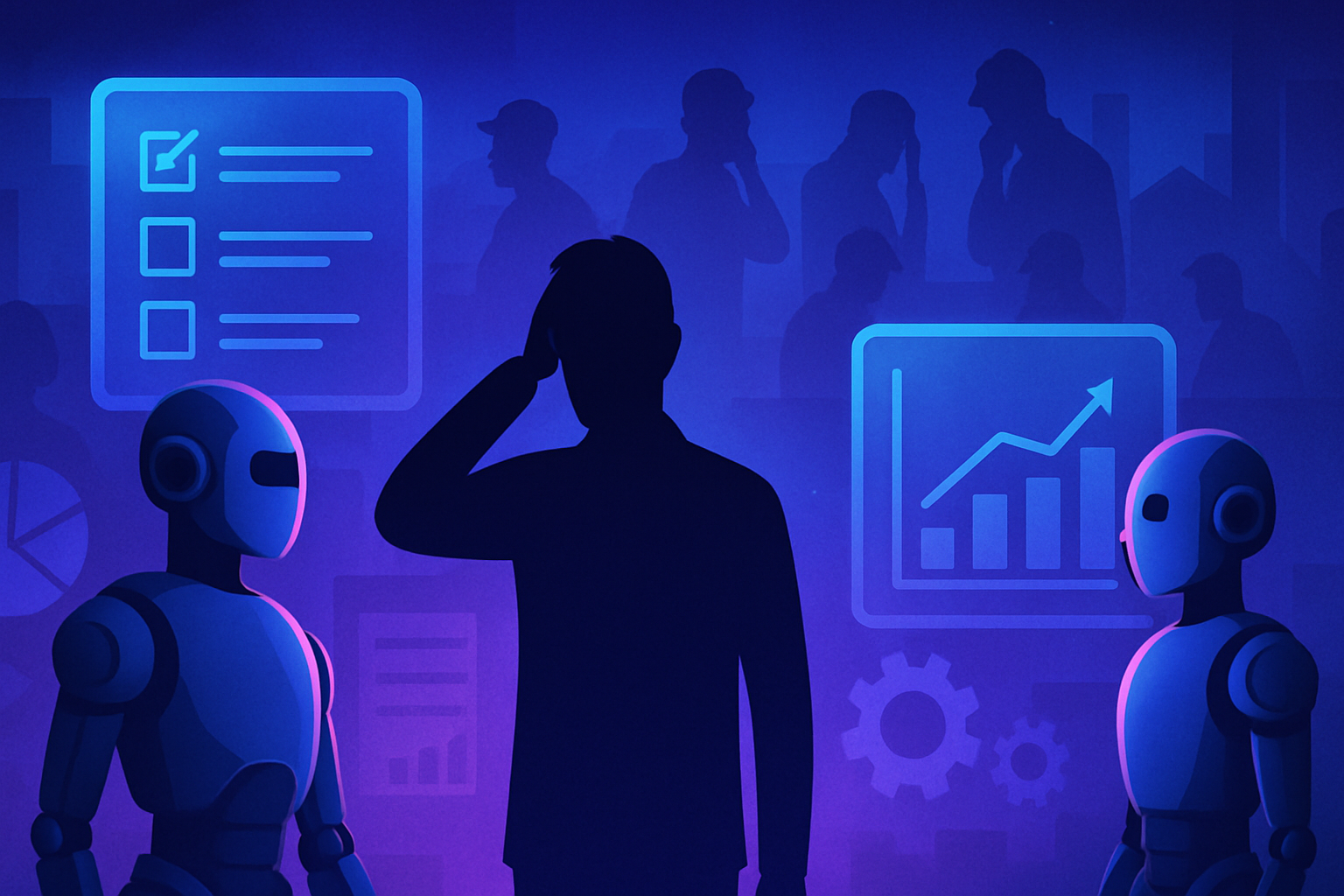Nearly half of British adults are anxious about the impact of AI on their professional future. *Concerns are growing over job losses and changes in working conditions*. A recent survey reveals that this apprehension is particularly pronounced among young adults, aged 25 to 34. Recent statements from major employers such as BT, Amazon, and Microsoft reinforce this fear, indicating that technological advancement could lead to job cuts. *Workers are demanding active participation in the processes of AI integration*, raising essential questions about the future of the job market.
Growing concerns among the population
A survey conducted by the Trades Union Congress reveals that nearly half of British adults feel threatened by the emergence of artificial intelligence (AI). Among the 2,600 respondents, 51% wish to express their concerns regarding the profound changes that this technology could bring to the job market. Layoffs and changes in working conditions are the main worries raised.
Young workers particularly worried
The sense of uncertainty is particularly pronounced among workers aged 25 to 34. Indeed, 62% of respondents in this age group express a strong apprehension about technological advancement. This trend highlights the urgent need to discuss the implications of AI in the professional world.
Reactions from major companies
Iconic companies such as BT, Amazon, and Microsoft are announcing impending changes due to advancements in AI. The possibility of workforce reductions due to automation raises concerns among employees. Facing a job market that is starting to slow down, the UK shows an unemployment rate of 4.7%, the highest in four years, although the majority of economists do not link this stagnation to investment in AI.
Call to action from the Trades Union Congress
The TUC argues that AI-based technologies can offer significant benefits to workers and improve public services. However, it urgently calls on the government to involve workers and unions in the implementation of these technologies in businesses to ensure job protection. A majority of respondents, specifically 50%, express a clear desire to participate in decisions regarding the use of AI in their work environments.
Conditions for using AI
As part of its AI plan, the TUC advocates attaching conditions to the billions of pounds earmarked for AI research and development. The aim is to ensure that workers are not replaced by new technologies. Furthermore, it seeks to establish a “digital dividend”, allowing employees to benefit from the productivity gains generated by AI, through training and improvements in working conditions.
Concerns about the future
The TUC emphasizes that the lack of safeguards regarding the use of AI could lead to a voracious inequality, a degradation of working conditions, and an increasing social discontent. The organization calls for an enhancement of social security and training systems to assist workers whose jobs are threatened by automation.
A potential but risky change
Kate Bell, assistant general secretary of the TUC, stated that AI could have transformative potential. If this technology is developed appropriately, workers can reap significant benefits. However, the downside could be grim; without rigorous management, the AI revolution could exacerbate economic inequalities as jobs erode, leaving shareholders to profit unchecked.
See more on the recruitment challenges with AI.
Understand the actual impact of AI on productivity.
AI and global cooperation.
AgentX applications and their future impact.
An overview of innovations in AI.
Frequently asked questions
What are the main concerns of British adults regarding AI and employment?
Nearly 51% of British adults are worried about job losses or changes in working conditions caused by AI, according to a recent survey by the Trades Union Congress.
Which age groups are most concerned about the impact of AI on employment?
Workers aged 25 to 34 are particularly worried, with nearly 62% of them stating they fear the repercussions of AI on their jobs.
How could AI affect the job market in the UK?
AI could lead to job losses and changes in working conditions, as indicated by major companies like BT, Amazon, and Microsoft, which are considering the use of AI to reduce their workforce.
What solutions does the Trades Union Congress propose to mitigate the effects of AI on employment?
The TUC calls on the government to involve workers and unions in the deployment of AI to protect jobs and provide training for those whose roles are replaced by AI.
What percentage of people want to have a say in how AI is used in businesses?
According to the survey, 50% of respondents want to be consulted on the use of AI in businesses and the economy in general.
What does the “digital dividend” proposed by the TUC mean?
The “digital dividend” refers to the productivity gains generated by AI, and the TUC proposes that companies invest in employee skills and training so that all workers can benefit.
What measures does the TUC want to see put in place to secure workers’ futures in the face of AI?
The TUC demands that conditions be attached to public funding for AI research and development to ensure that the technology does not lead to mass layoffs.
What risks does the TUC identify if AI is not managed properly?
Without safety measures, the TUC warns of the risk of increasing inequalities, a deterioration in working conditions, and rising social discontent in the context of AI.
Why is it important to strengthen social security and training systems in the UK in light of changes related to AI?
Strengthening these systems is crucial to help workers maintain their jobs and retrain, especially if their positions are threatened by AI.






